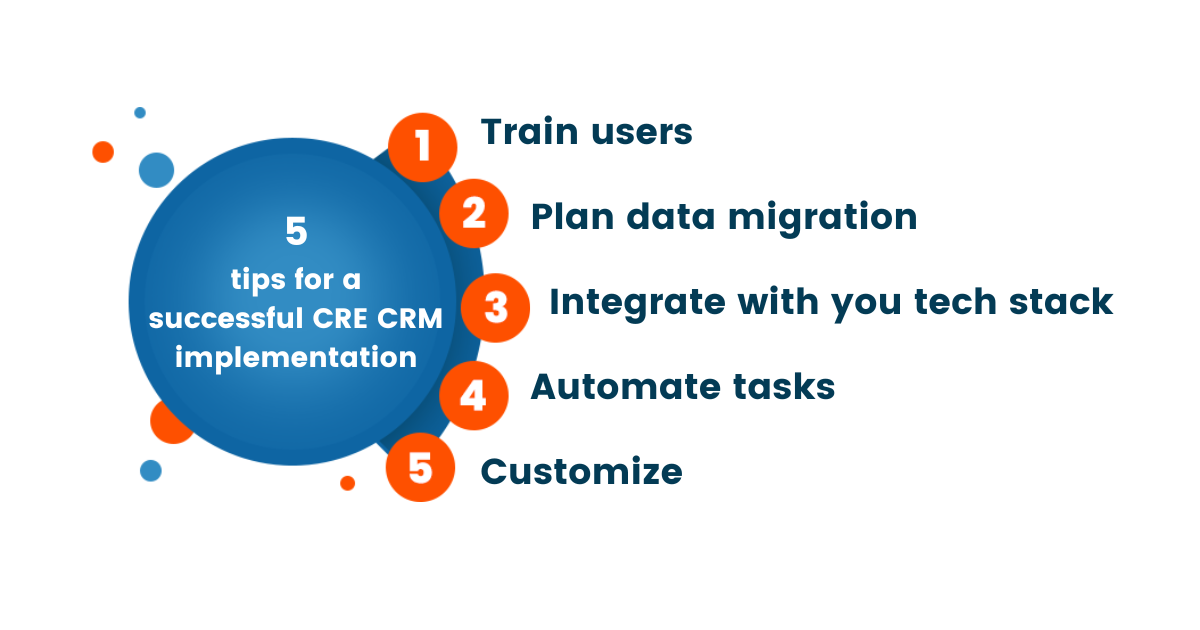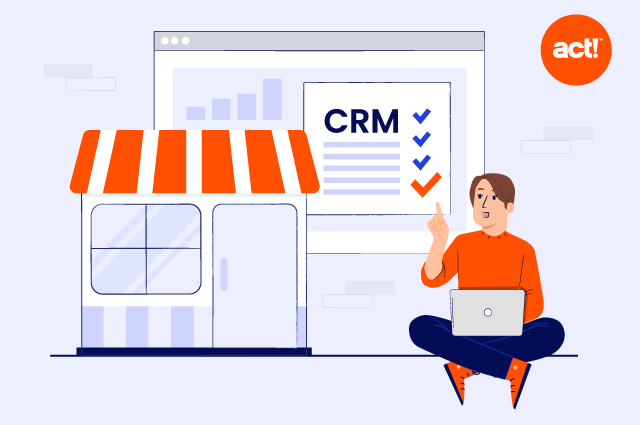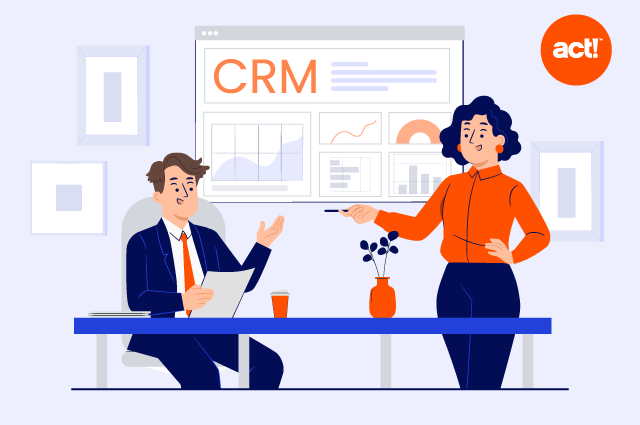
When you’re dealing with commercial real estate, you know you need to provide a carefully curated experience to your potential clients. These real estate transactions typically require approvals from multiple stakeholders within and across businesses, including the C-suite.
You need a solid account-based marketing (ABM) approach to get your potential clients interested, and this is where a customer relationship management (CRM) solution can come in handy. A CRM for commercial real estate can help you manage your accounts and implement a targeted marketing approach.
But how can ensure that you use your CRM system to its fullest extent to meet your business needs? To help you with that, we’ve put together this guide with CRM best practices for a smooth CRM implementation in your commercial real estate business.
What is a commercial real estate CRM?
All CRMs have got to be the same, right?
Wrong.
Generic CRMs are built for all sorts of businesses. As a result, they may lack certain functions that cater to the specific needs of the real estate industry.
A commercial real estate CRM is an all-in-one platform through which real estate brokers, agents, and teams can connect with prospects to sell or lease commercial properties and nurture existing client relationships. It will also help you manage your sales pipeline and create targeted real estate marketing campaigns to drive sales.
Some key features of commercial real estate software solutions include:
- Comprehensive Contact Management
- Property and Pipeline Tracking
- Scheduling and Email Integration
- Email Campaigns
- Customizable, Scalable, and Accessible
Importance of using a commercial real estate CRM
Using a generic CRM system or spreadsheet may seem like a good, simple option, but they have limitations that could impact your bottom line. Here’s why you should choose CRM software for commercial real estate instead.
1. Streamlines contact management
As mentioned earlier, you need to get your ABM approach right to close deals or leases. And that’s where contact management comes into the picture. Unlike a generic CRM, a real estate solution will help you collect and manage crucial details like:
- Budget and pricing
- Timeframe
- Preferred locations
- Property types
- Prospecting segments
The right CRM system will help you build a comprehensive client profile so you can find the ideal properties for them. Also, by bringing all the conversations with various account stakeholders under one roof, you can manage your clients with ease.
2. Maintains a Detailed Property Inventory
Whether your focus is on representing buyers, sellers, landlords, or tenants, you are in the business of closing property transactions. A CRM must have the ability to keep the property details that are vital in managing the full cycle of every transaction. Additionally, it must have the ability to search for any detail to find matches with your clients and prospects’ requirements and easily link these contacts, companies, and properties together. The system should have a robust pipeline feature that enables you to monitor every stage of each property transaction.
3. Improves personalization
With commercial real estate CRM software, your team will have access to in-depth information about prospects. This enables them to adopt a more personalized approach when communicating with them. At the same time, your marketing team will be able to send out personalized campaigns that strike a chord with your clients.
4. Simplifies marketing
Commercial real estate CRM software that offers marketing automation features can make your marketing campaigns a breeze to implement. You can set up trigger-based emails, drip email campaigns, and response-driven emails to drive lead generation and nurture your prospects on autopilot.
5 tips to successfully implement a commercial real estate CRM

Now that you know about the importance of having a commercial real estate CRM, let’s take a look at the best practices you can implement to drive more conversions for your real estate business.
1. Train your users
Before you start using a commercial real estate CRM platform for your business, you must train your team members thoroughly. It’s equally crucial to communicate why you’re implementing the solution.
Although modern-day CRMs have become easy to use, training your real estate professionals can help improve employee productivity so they make the most of the new system. Hold training sessions for both desktop and mobile apps so your employees can get up to speed with using them.
2. Plan your CRM data migration
Whether you’ve been using a generic CRM or spreadsheets, it’s critical to import all the data into your real estate CRM. Here are some tips to do it the right way:
- Go through your existing data and eliminate spammy or incorrect entries.
- Remove incomplete and duplicate entries.
- Keep only the most up-to-date information about a particular client, and remove the rest.
Once you’ve cleaned up your dataset, you can import it into your new commercial real estate CRM.
3. Integrate with your tech stack
You might already have an existing tech stack with applications like project management tools, email software, sales platforms, accounting solutions, and more.
The commercial real estate CRM solution you choose must be compatible with most, if not all, of the software in your tech stack. The integrations will enable smooth transfer of data between platforms and lead to a better workflow. For instance, Act! integrates with numerous sales, social media, e-commerce, and customer service platforms, including Slack, Microsoft, Google, Shopify, and Zendesk.
When you start using your new CRM, make sure you integrate it well with all the existing solutions through native or third-party integrations. Train your employees to use these integrations well.
4. Automate your tasks
One of the other best practices of using commercial real estate CRMs is leveraging automation features the right way. Start by choosing a CRM solution that offers automation. For instance, Act! offers marketing automation features to help you send out personalized campaigns.
Once you’ve chosen your CRM, start looking for repetitive tasks that you can automate. From routine follow-ups to email campaign scheduling and lead management, you can do a lot to streamline your process and free up your time so you can concentrate on delighting prospects and clients.
5. Customize to fit your needs
Even the best real estate CRM won’t be a perfect match for every CRE business. Instead, you will likely have to customize it to suit your exact needs.
Some of the best practices for achieving this include:
- Adding custom fields to collect crucial contact details
- Customizing the CRM interface to suit your needs
- Creating email templates for marketing automation
- Choosing how to deploy the CRM (cloud or on-premise)
Act! offers an array of deployment options, along with industry-specific templates giving you the ability to customize your CRM for your real estate needs.
Ace real estate business growth with Act!
A generic CRM won’t cut it when you’re in the business of commercial real estate. Instead, you should provide your organization with a cutting-edge CRM that’s purpose-built for real estate and implement it well.
Act! is a powerful, customizable platform that offers solutions for real estate businesses. Take a test drive now of Act! for Commercial Real Estate to see how Act! can skyrocket your sales while making your team’s lives easier.






